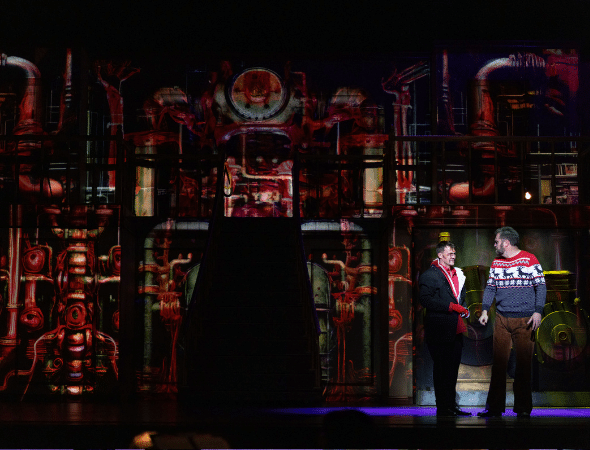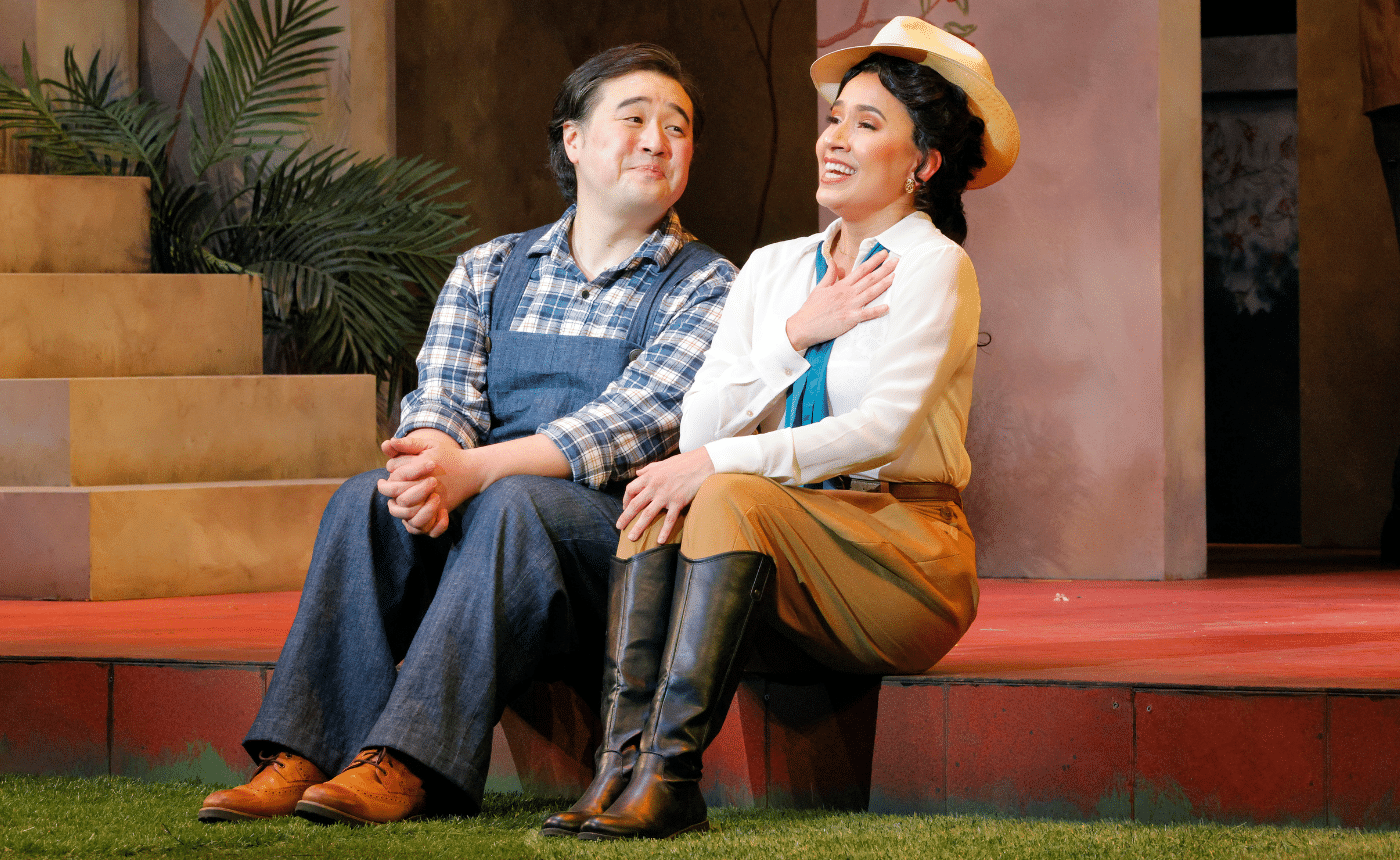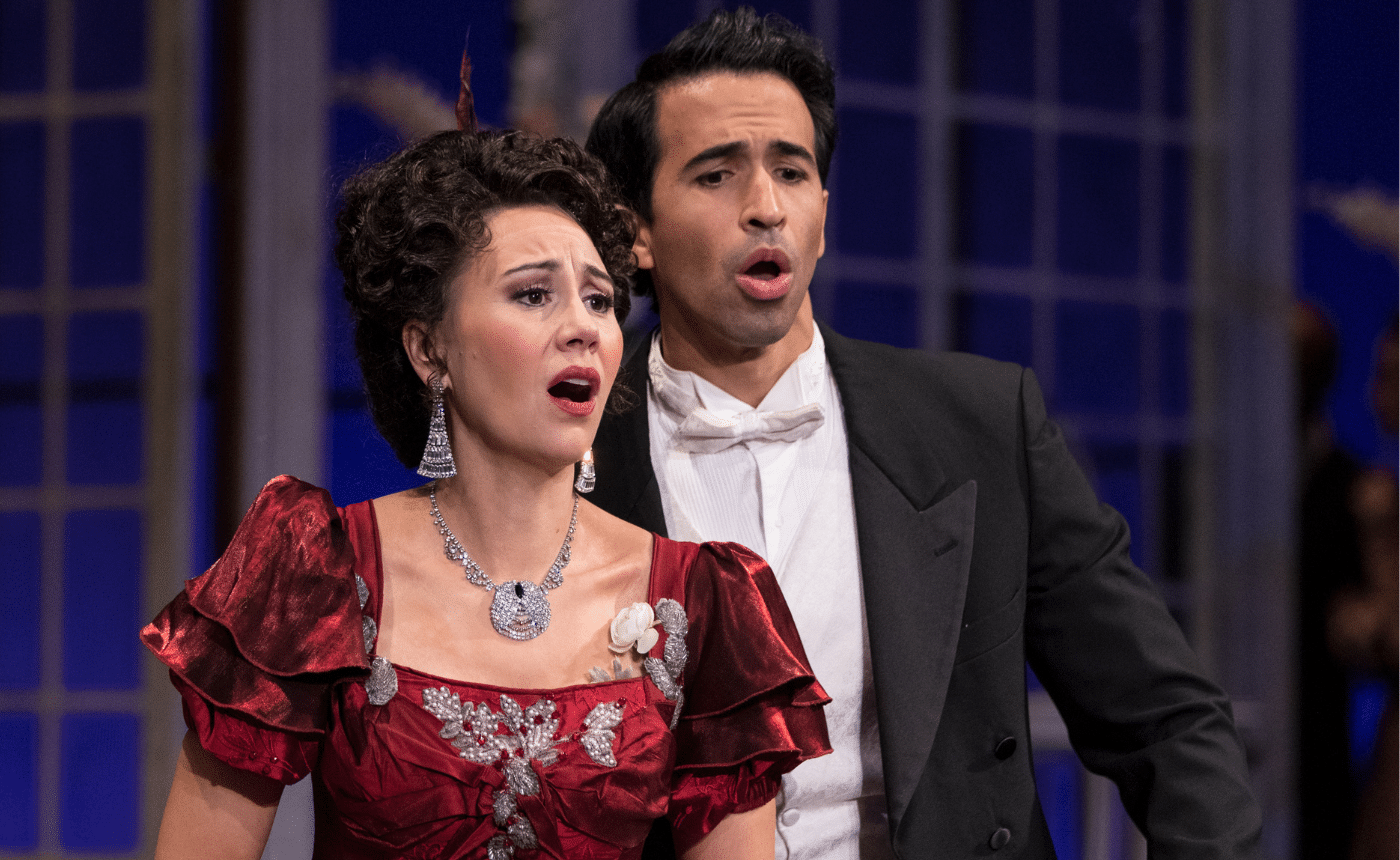The ShiningA Note from the Composer
Stephen King’s novel The Shining is naturally operatic: it sings. The story dramatizes three of the most basic aspects of opera — love, death, and power. To me above all, it is about the power of love in the presence of evil and destructive forces. For all of the supernatural elements and high-voltage action, it’s a very human story about an ordinary family trying to stay together under extraordinary duress. It was a joy for me and Mark Campbell to imagine this timeless predicament in musically dramatic form, along with the novel’s evocation of terror and the supernatural.
The opera focuses on the musical characterization of Jack Torrance as a genuinely conflicted, three-dimensional person. Much of the music, including the orchestral interludes, works to get us inside Jack’s mind and central nervous system so that we can feel the transformation of a basically decent guy trying to do the right thing as he is overwhelmed by madness and evil.
Deeply resonant archetypes are the stuff of operatic treatment. Among the archetypes in Mr. King’s story guiding my composition of the score are those of Abraham-and-Isaac, Jekyll-and-Hyde, and even Siegfried/Götterdämmerung.

I have composed for each character a distinctive group of Leitmotivs that continually evolve and combine over the course of the drama. The two contrasting realities — the natural and the supernatural — are reflected in two distinct musical sound-worlds that periodically converge as the drama requires.
In the final analysis (odd as this may seem) I would like the members of the audience to forget that they’re watching an opera. For all of its complexity and sophistication in the synthesis of drama and music, the power of opera as an art-form arises from its essentially primal, irrational nature and from “the primitive underworld of our souls,” in the words of Robertson Davies. “Opera speaks to the heart as no other art does, because it is essentially simple.”
Paul Moravec




